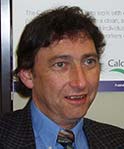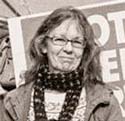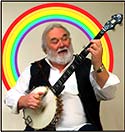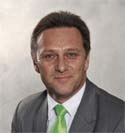QUESTIONS FROM THE SUSTAINABLE TRANSPORT GROUP
Three questions to seven Parliamentary Candidates
Wednesday, 8 April 2015
The Sustainable Transport Group has written to each of the seven candidates, posing three more questions on transport policy. Fiveof the candidates have replied.
1. Can you tell us what will be your 3 biggest priorities for transport policy, if you are elected as MP for Calder Valley?
Josh Fenton-Glynn (L):
Firstly, getting local train services sorted. The Pacer trains on the Calder Valley line were brought in as a short term measure in the early eighties. A Labour government would see the end of these unclean, unreliable and unsafe trains.
Secondly local bus services must respond to the needs of the population. I supported a campaign by bus users in Hebden Bridge when the routes to Blackshaw Head and Heptonstall were under threat. We saved them, but in the long term bus companies control our transport. Labour's Passenger Power initiative would put power in local hands.
Finally, our roads are a disgrace, let's sort these pot holes.
Alisdair Calder McGregor (LD):
- Better public transport integration between Rail & local feeder buses, with more bus services scheduled to connect with local trains
- Push ahead with electrification, modernisation of rolling stock and more services stopping at stations which are currently poorly served
- (Re-) opening of stations at Elland, Hipperholme and Cornholme
Paul Rogan (UKIP):
My policy is to improve it; the 3 things on my list are:
- Hipperholme Junction
- Traffic relief through the valley
- More trans Pennine infrastructure
Jenny Shepherd (G):
- Support Calderdale Councillors in bringing air pollution within legal limits and making Calderdale part of the West Yorkshire Low Emissions Zone
- Support electrification of the Calder Valley Line as the region's top transport policy
- Bring the railways back into public ownership
Joe Stead (Ind):
Rod Sutcliffe (YF):
- Electrification of the Trans-Pennine rail routes, including the Calder Valley line, with a rolling programme of electrification of other routes.
- Improving connectivity for commuters, local people and travellers with better integration between bus and rail, interchangeable tickets, easy transfers between bus and train at stations, adequate car parking, safe walking and cycling routes, and new stations on existing routes.
- Protection and improvement of affordable, frequent and regular community bus services through franchising and strong quality contracts.
- Cheating, but I have to include support for the Mytholmroyd Station Partnership project - an absolute must!
Craig Whittaker (C):
If re-elected I will continue to campaign for transport improvements across the whole of the Calder Valley. HS2 is critical to long-term economic future of the north and I will continue to support this as well as 'HS3', the electrification of the Caldervale line and improved train services for the Calder Valley. I will also support improvements in our road network such as the proposed Brighouse by-pass and will continue to campaign for better access to bus services for rural communities across the Calder Valley.
2. How do you think we can achieve a transport system that is low in carbon use and good for people's health?
Josh Fenton-Glynn (L):
We need to get people out of their cars. The key to that should never be about making cars more difficult but about making the other options easier. Labour would force prices of rail tickets down and improve regional rail.
I really welcome improvements like Calderdale's Greenway cycle scheme to make it easier to commute by bike. I'd hope to work with a Labour council as a united team to extend more similar projects.
Alisdair Calder McGregor (LD):
- Electrification of road and rail vehicles, to remove immediate carbon emissions from vehicles, along with decarbonisation of the energy sector by the use of biomass, renewables, and (where necessary) molten salt energy technology.
- The improvement & maintenance of cycleways and footpaths to encourage their use, along with cycle-secure installations at railway stations. I personally proposed policy on improved cycling as part of the "Five Green Laws" which will appear in our Manifesto.
Paul Rogan (UKIP): More use of rail
Jenny Shepherd (G)
- End the wasteful national major roads programme, saving £15bn over the Parliament.
- Spend part of this £15bn on improving and subsidising public transport to reduce fares and invest in walking and cycling;
- Make our towns and the distances between them walkable and cycle-able
- Invest in electric vehicle charging points for buses and taxis, and for cars where there are gaps in the network of public and community transport.
- Aspire to a road transport system that results in zero deaths or serious injuries by systematically reducing sources of danger on the roads
Joe Stead (Ind):
Rod Sutcliffe (YF):
We have to attract people out of their cars and onto their feet, bikes, buses and trains. Therefore we have to make trains and buses cheap, pleasant, frequent, reliable and easy to connect. We have to make walking and cycling enjoyable and safe with dedicated routes and lanes, bike awareness schemes and facilities for hiring and securely storing bikes. With cars we have to promote fuel efficiency, low carbon emissions, electric for urban driving, car share schemes and other ideas. We have to continue with lowering urban speed limits and safety measures for pedestrians and cyclists.
Craig Whittaker (C):
The investment in the train network that the Government has outlined will help to cater for the continuing increase in passenger numbers and will assist in reducing transport related carbon emissions. The government's investment in green technology will also assist in this regard. Here in Calderdale, the Council is pursuing a 20mph speed limit across the borough which will help to reduce emissions across the borough.
3. What changes do we need, if any, to local and regional government to plan and deliver transport change across Yorkshire and the north of England?
Josh Fenton-Glynn (L):
Too much of our transport policy is formed in London and centres on trains to and from London. For every £10 spent on transport in the UK £9 is spent in London and the south east. For regional economies to work I believe we need to put more money into transport in the regions. The best way to make those decisions is to have more power regionally. That is why I'm proud that Labour is going to move the control of £32 billion of Whitehall spending to regions.
Alisdair Calder McGregor (LD):
Local transport policy needs to become more accountable to local people. The current West Yorkshire Combined Authority lacks democratic legitimacy, being divorced from democratic oversight by the people. Transport Policy should be devolved to a democratically elected Yorkshire Parliament, as Transport Policy in Scotland & London is, instead of being decided by a shadowy quango without any accountability for its decisions.
Paul Rogan (UKIP):
As soon as I hear the words, local and regional government, hairs go up on my neck. This lot will just seek to employ more people and get nowhere. The lead policy must come from Westminster and 'guidance' issued to lower tiers of administration.
Jenny Shepherd (G):
- Reverse the cuts to local authority funding so that Councils can monitor air quality properly and put in place schemes to improve air quality
- Allow local authorities to run local public transport as they wish, including using publicly owned and run services, and employing social enterprise and voluntary sector organisations
- Require local authorities to set out a local carbon plan showing how its area will meet overall greenhouse gas reduction targets - including for transport.
- Put planning back in the hands of local government by repealing the National Planning Policy Framework and in particular its presumption in favour of development.
Joe Stead (Ind):
Rod Sutcliffe (YF)
We need cooperation, coordination and collaboration at local, Yorkshire and pan-northern levels. Local councils need more powers to specify community bus services. Yorkshire needs a democratically elected government similar to the Scottish Parliament, with powers to shape transport services. This will be more proactive, responsive and accountable to the people of Yorkshire. A Yorkshire government would be able to plan transport within, to and from Yorkshire, for Yorkshire, as part of a pan-Northern transport plan, including passenger and freight rail services. The West Yorkshire Combined Authority is unelected, undemocratic and unaccountable, and will not serve the purpose.
Craig Whittaker (C):
The Government recently agreed a new devolution deal with the West Yorkshire Combined Authority through which it takes further responsibility over transport.
A transformation in transport connectivity between the cities of the north is vital to realising their potential to become a "northern powerhouse" for the UK's economy. Last year, the government set out how it intended to work with various agencies to develop a new transport strategy for the north.
Central to this is improving the railways connecting the northern cities. As announced by the PM, this includes the development of proposals for HS3.
See also
The HebWeb Election Section home page
HebWeb Election Hustings - use this forum thread for any responses the candidates' replies may provoke







